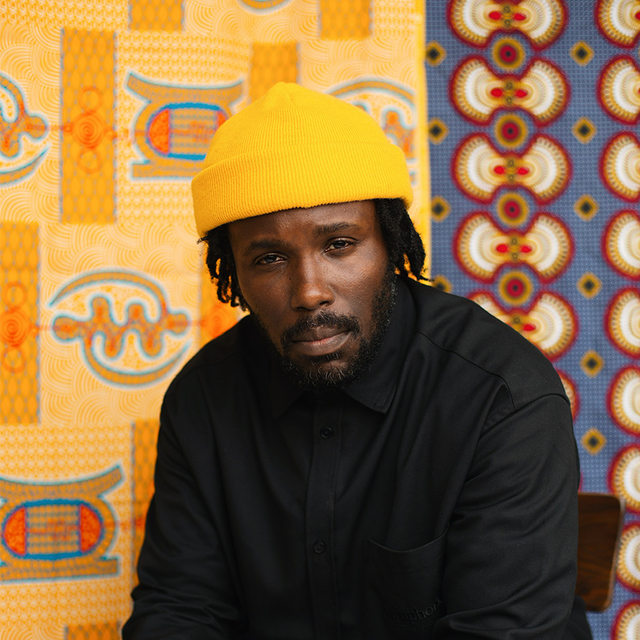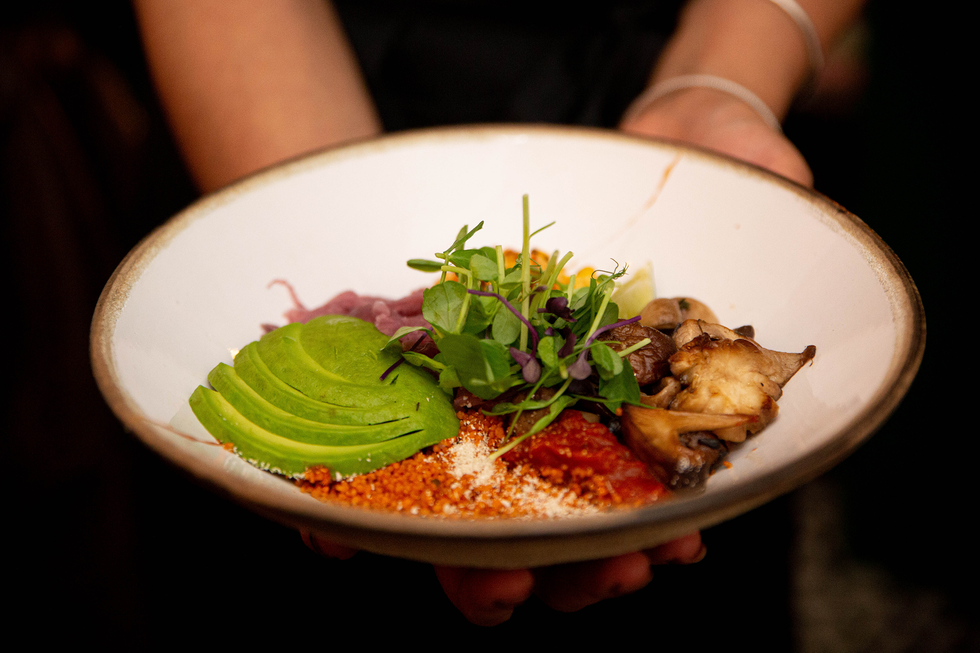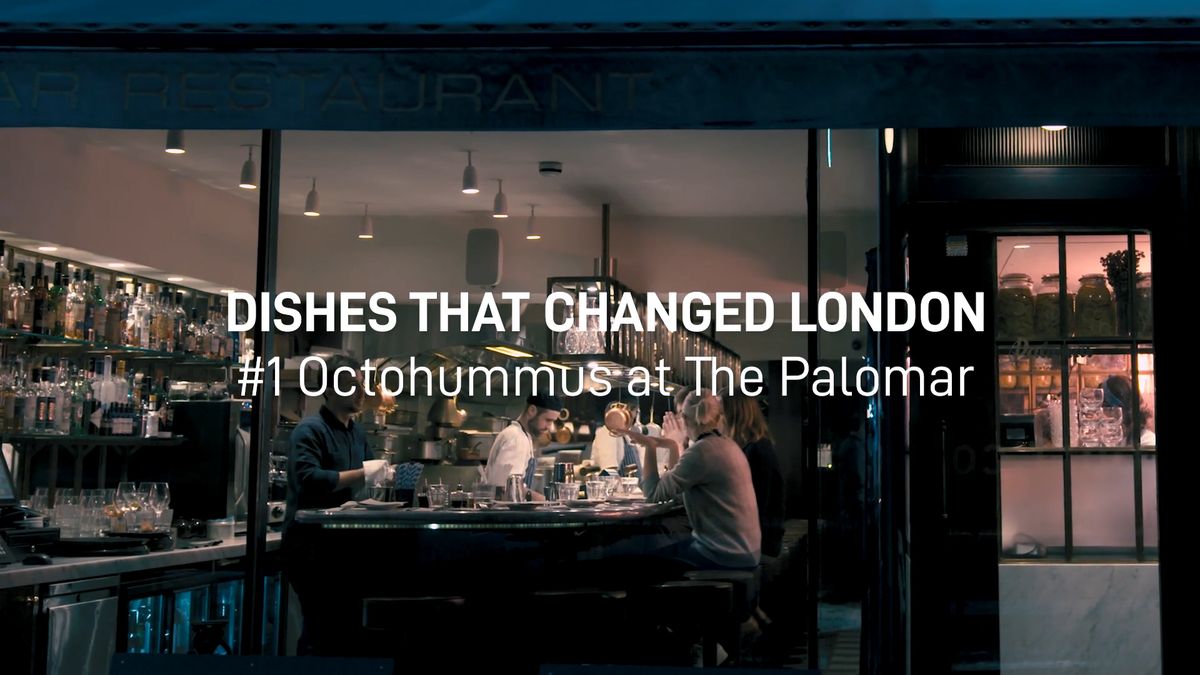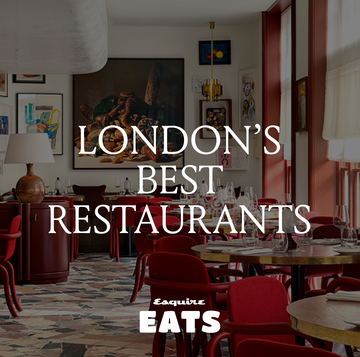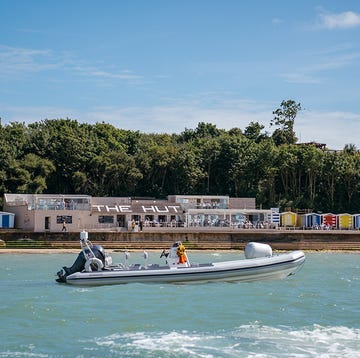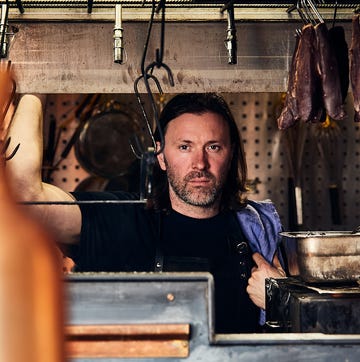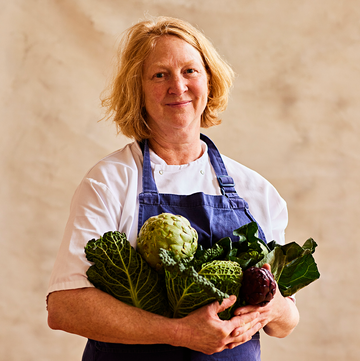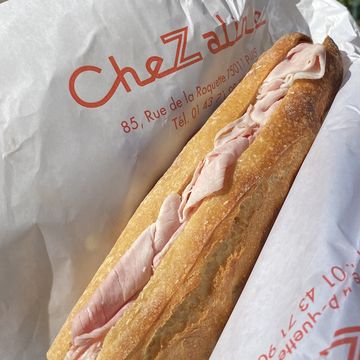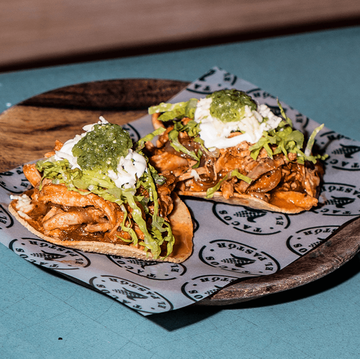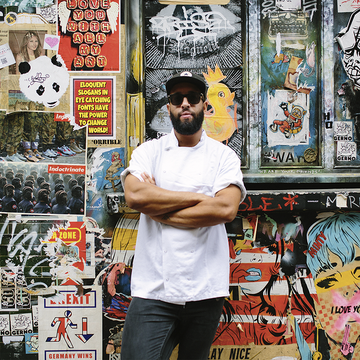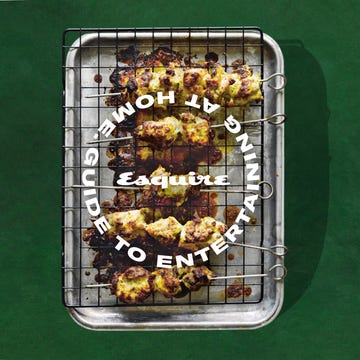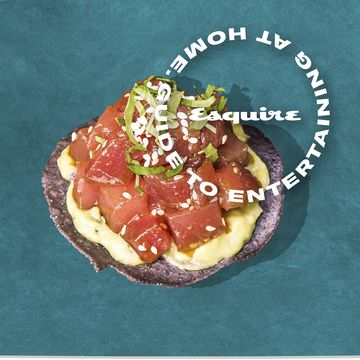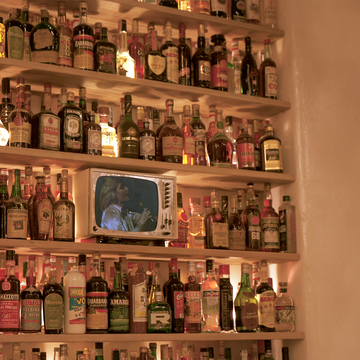When Akwasi Brenya-Mensa was a child, grow-ing up in Mitcham, south London, he became unofficially anointed as his “mum’s assistant” at mealtimes. The eldest of four boys, Akwasi was the one who found himself in the kitchen with his mother, peeling sprouts at Christmas or mashing things in the asanka, a ridged clay pot ubiquitous in Ghana — from where both his parents emigrated to England in the 1970s — which is used to pound food smooth.
“To me, it was like this massive science experiment. It was like alchemy,” says the 40-year-old chef, who trained under The Great British Menu’s champion of champions James Cochran at Restaurant 12:51 in north London, and whose own restaurant, Tatale, is due to open in south London imminently. “It was like, how have we gone from peanuts, tomatoes, ginger, garlic, water and some salted fish, to then having a groundnut soup at the end, which is really delicious? I was very curious about the whole thing, asking questions. Maybe annoying my mother, who knows!”
Brenya-Mensa intends Tatale, which will occupy the ground floor of the Africa Centre in Southwark — the new location for the tremendously influential cultural space that was founded in Covent Garden in the 1960s — to be “relaxed, but also a bit educational” and serve as “a gateway to African food or African cooking” for those to whom it is less familiar.
Take, for example, the restaurant’s name. This he borrowed from a Ghanaian plantain pancake dish. “I wanted something that is universal of the black experience,” he says. “Plantain is central, whether it’s African food, Caribbean food, Brazilian food or even in Latin America: any area where there are large black populations.”
I met Brenya-Mensa — briefly — at a test dinner for Tatale on a cold evening in late January; Covid-related staff shortages and an eleventh-hour venue change meant that he and his kitchen were somewhat up against it. “It was a hurricane backstage,” he tells me on the phone, some recovery days later (he and his team finished at 4.30am). Still, the delicious food —which included chichinga chicken with palm-wine pickled cucumber, and a whipped cheesecake with chin chin crumb — didn’t let on. When it came to serving the omo tuo and nkate nkwan (mashed rice balls in groundnut soup, which, at Brenya-Mensa’s supper-club events, has acquired a “cult-like status”), there was a shortage of bowls: it came out instead in giant serving dishes. One spoonful in and no one seemed to notice.
Having begun his cooking education in his mother’s kitchen, Brenya-Mensa continued it in Sheffield, where, while studying for a degree in criminology and social policy, he noticed the “burger wave” that had already taken hold in London had yet to arrive. He opened a burger pop-up, which, as a budding criminologist, he took on with a forensic intensity. “That’s always been my approach: to break things down,” he says. “With burgers it was, what makes the perfect patty? What makes the perfect sauce? I made hundreds of versions, tweaking this and that.”
Later, working as a DJ and in music management, he travelled widely, often hosting supper clubs when back in the UK, where he would experiment with the cuisines he’d experienced abroad. His mum might be sympathetic to the food purveyors of Tel Aviv, where, in 2018, he “ate the most amount of hummus and probably annoyed the most amount of hummus-makers by asking them many, many, many questions”.
The Tel Aviv research morphed into another favourite dish at the supper clubs: black-eyed bean hummus with red palm oil and dukkah, a Middle Eastern spice blend. “I like to immerse myself in a culture or a place,” he says, “try to understand it from the inside, and then replicate it on a plate.”
It was during a family trip to Ghana in 2019, however, when the plans for Tatale started to click. “That’s when the cogs started turning,” he says. “I realised that I could take the process of going to a place, tasting and trying everything, speaking to chefs and speaking to people, and apply it to my own heritage.”
That experience, coupled with a growing sense that the UK food scene was becoming more open and curious about African cuisine— Brenya-Mensa cites the success of restaurants including Chishuru in Brixton, Chuku’s in Tottenham and Stork in Mayfair — meant that the timing now feels right. “It’s only recently that there’s been that interest,” he says. “So I don’t know if it could have happened much earlier than it did.”
Recently, Brenya-Mensa stood in the kitchen with his mum again. He had asked her and his aunt to take him through their recipe for “red red”, a black-eyed pea stew. As they cooked, he tried, gently, to suggest ideas he’d come across from his own cooking, such as using less oil.“They weren’t interested,” he says, laughing. “But that’s what the concept for Tatale has been born out of: learning how things were done before me. It’s a different story than the one my mum or aunt would tell. It’s my story. I’m OK with that.”
Tatale, 64 Suffolk Street, London SE1, will open on 14 July; tataleandco.com
